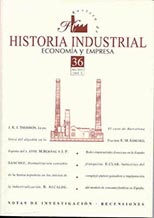The Politics of Cotton in Eighteenth Century Spain
DOI:
https://doi.org/10.1344/rhi.v17i36.19862Keywords:
Algodón, Política económica, España, Siglo XVIIIAbstract
As elsewhere in Europe Spain, confronted by an influx of oriental cotton imports, which originated in the sixteenth century and became significant from the second half of the seventeenth, ended by introducing a range of import restrictions on products containing the fibre. Prior to Charles II’s death these were piecemeal, discontinuous, varied from region to region and were generally ineffective but, following the confirmation of Philip V’s accession by the treaty of Utrecht, they were continuous and increasingly concerted for Spain’s extensive, global territories. The resulting legislation provided the parameters within which Spain’s cotton industry progressed during the 18th century. This article describes the legislative process itself, its intention being to identify the main determinants of legislation and thereby provide insights into the manner in which commercial and industrial policy was elaborated during the last years of the Old Regime
Downloads
Downloads
Published
How to Cite
Issue
Section
License
The author assigns all rights to the publisher. Creative Commons
The author who publishes in this journal agrees to the following terms:
- The author assigns all intellectual property rights exclusively to the publisher for the entire duration of the applicable intellectual property rights.
- The publisher will distribute the texts under the Creative Commons Attribution License, which allows others to share the work, provided that they acknowledge the authorship, its initial publication in this journal, and the conditions of the license.





